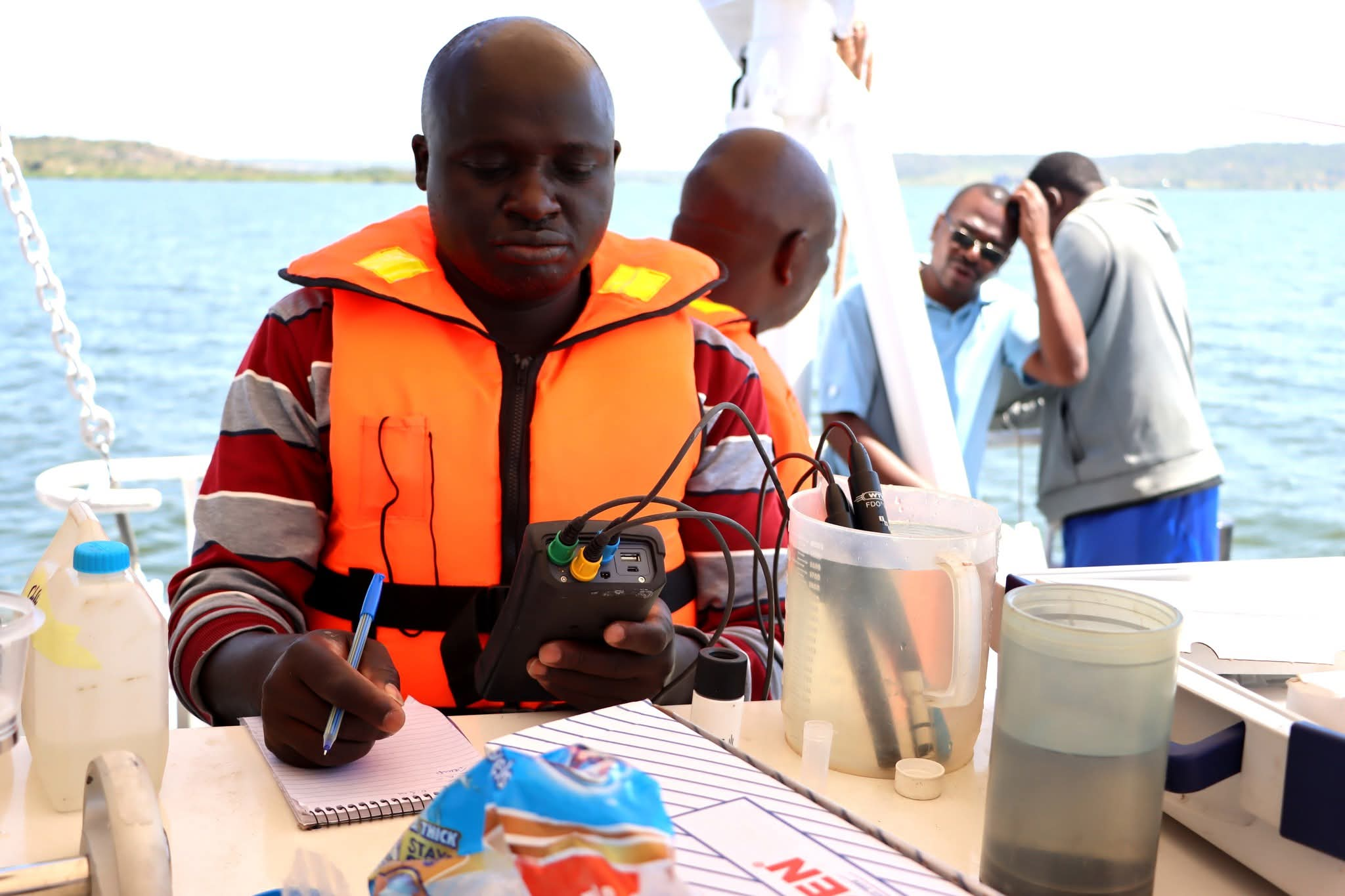

A scientific study has sounded the alarm over the deteriorating health of Lake Victoria, raising urgent concerns for more than 40 million people who depend on the lake for food, income and everyday life.
Commissioned by the Lake Victoria Basin Commission (LVBC), the month-long regional assessment paints a sobering picture: pollution is rising rapidly—especially around major urban centres in Kenya, Uganda and Tanzania—putting livelihoods, food security and public health at growing risk.
The findings, released in Mwanza, Tanzania, reveal dangerous levels of contamination in the lake’s nearshore waters. These areas, closest to human activity, are heavily polluted by untreated sewage, agricultural runoff and unmanaged solid waste.
Researchers collected samples from over 44 sites, focusing on cities such as Kisumu, Kampala, Entebbe and Mwanza—where the pressure on the lake is most severe. Water was sampled from both the surface and the depths, with tests conducted in the field and in specialised laboratories.
“We looked at temperature, turbidity, pH, dissolved oxygen and photosynthetically active radiation, among others,” said Eng Simon Otong, LVBC’s water resources management officer.
The results were troubling. Elevated levels of nitrogen and phosphorus—nutrients that trigger harmful algal blooms—were found alongside increasing concentrations of silica, alkalinity and suspended solids.
Scientists also measured chemical oxygen demand—an indicator of organic pollution—and tested for heavy metals including mercury, arsenic and lead in areas deemed pollution hotspots.
The team also examined the lake’s biology. Microscopic algae, or phytoplankton, were monitored to understand how pollution is affecting the aquatic food chain.
“This gives us a real-time snapshot of the lake’s condition—physically, chemically and biologically. We’re no longer guessing; the data is clear. Now, action must follow,” Otong said during the release of the report.
The science reflects what local communities have long suspected.
In Kisumu, fishermen say fish are disappearing from traditional grounds—forced out by oxygen-starved, polluted waters.
“It’s harder and harder to earn a living. The fish are gone where we used to cast our nets,” said a local fisherman, echoing the concerns of many who rely on the lake to feed their families.
Dr Benjamin Kyalo, Kenya’s deputy director of water resources, noted, “Pollution is concentrating around urban areas and it's driving fish away. This is now a major threat to food security and livelihoods.”
For Uganda, the findings underscore a growing challenge for infrastructure and water treatment systems.
“We haven’t had a regional study of this scale in over 20 years,” said Dr Obubu Peter, Uganda’s assistant commissioner for water quality. “Our systems weren’t designed for this kind of pollution. We’re approaching a critical point.”
Tanzania’s assistant director at the Ministry of Water, Monica Mushi, called for collective responsibility among the three East African nations.
“This lake doesn’t belong to one country. What happens upstream affects everyone downstream. We must act together—to protect our people and the generations to come,” she urged.
The study was supported by the German Development Agency (GIZ), whose technical adviser, Cosmus Muli, stressed the importance of evidence-led environmental action.
“Effective governance starts with data. This report gives us the knowledge we need to guide policy, investment and cooperation,” Muli said.
LVBC executive secretary Dr Masinde Bwire called the findings a “wake-up call” for East Africa.
“You can’t fix what you haven’t measured. Now that we have the evidence, what’s needed is political will and cross-border unity,” he said.
The study’s findings will form a core part of the 2025 ‘State of the Lake Victoria Basin report’, expected to shape policy, guide infrastructure investment and drive environmental planning for years to come.
Instant Analysis
Lake Victoria is in ecological distress. Pollution from urban waste, farms and industry is overwhelming its waters, especially in areas near major cities. The damage threatens not only fish stocks and biodiversity, but also the livelihoods and health of over 40 million East Africans. Scientists are calling for urgent action—rooted in data and driven by collaboration between Kenya, Uganda and Tanzania. The lake’s future now depends on the region’s ability to act as one.











![[PHOTOS] Bare foot, limping suspect behind cop killing](/_next/image?url=https%3A%2F%2Fcdn.radioafrica.digital%2Fimage%2F2025%2F10%2Fb6045091-9561-438e-93f0-c0ed34019d54.jpg&w=3840&q=100)

